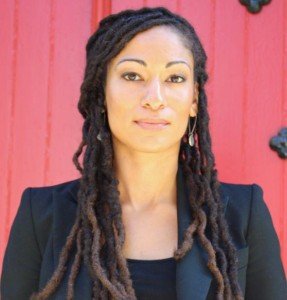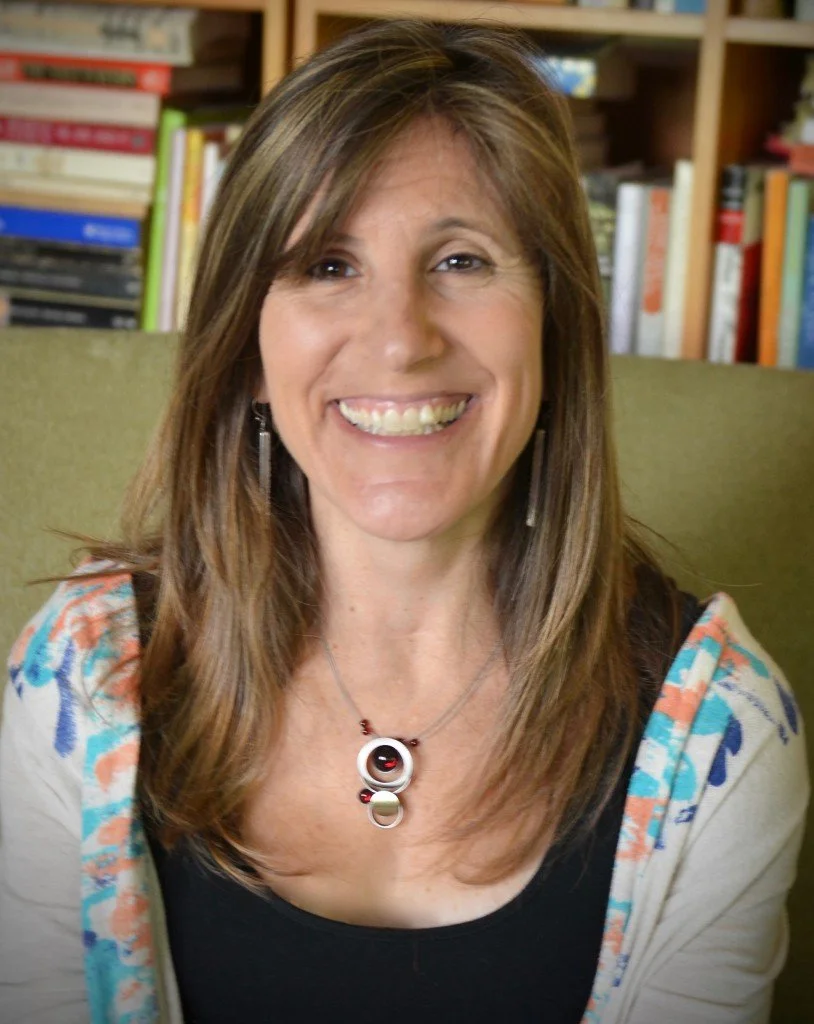Lila Abu-Lughod Reviews Katherine Zoepf's "Excellent Daughters: The Secret Lives of Young Women Who Are Transforming the Arab World"
Lila Abu-Lughod, Joseph L. Buttenwieser Professor of Social Science, Columbia University and director of CSSD's working group on Religion and the Global Framing of Gender Violence, reviewed Katherine Zoepf's Excellent Daughters: The Secret Lives of Young Women Who Are Transforming the Arab World in the latest issue of the Women's Review of Books.
In the review titled "'Muslimwomen,' Journalists and Scholars," Abu-Lughod credits Zoepf with concrete observations in her journalistic stories, saying "She shows not a trace of the self-promotion, polemic, or prejudice that colors so much popular writing on this subject," but finds other problems with the writing.
Zoepf makes no reference to the devastating effect that U.S. policies have had on people living in the Arab world, Abu-Lughod contends, but instead focuses on sensationalizing, cliched subjects like virginity examinations, medieval history, and the hijab.
Abu-Lughod goes on to say that "Zoepf’s apparent loyalty to the standard operating procedures of her profession (of journalism) prevents her from considering the extraordinary feminist scholarship that exists now on the very topics she covers."
Read the full review here.
Ruha Benjamin on “Can the Subaltern Genome Code? Reimagining Innovation and Equity in the Era of Precision Medicine”
In November, Ruha Benjamin, Assistant Professor in the Department of African American Studies at Princeton University, visited CSSD’s Project on Precision Medicine: Ethics, Politics, and Culture to argue for a re-imagining of innovation and equity in the era of precision medicine. Her presentation, “Can the Subaltern Genome Code?” presented a number of competing struggles over the future of precision medicine, positioning the field in a contemporary landscape of racialized inequality and disparities in access to genetic information.
The stakes of precision medicine, Benjamin explained, involve thinking through the underlying reasons for scientific intervention in human genetics. She emphasized that it is crucial for stakeholders involved in the creation and imagination of precision medicine’s possibilities to also reimagine inequality as a concept with biological underpinnings.
Benjamin critiqued the life sciences’ claims to be able to arbitrate the reality of race—particularly genomic researchers' attempts to establish a biological basis for racial difference—and emphasized that questions remain about the racialized aspects of who has the power to translate and interpret genetic information. (Hence the question: Can the subaltern genome code?)
Benjamin also challenged the policies of some states, like the U.K. and Kuwait, that have adopted border-control and information-gathering policies based on the notion that social differences such as ethnicity and nationality can be verified with genetic groupings. This false diagnosis of identity brands national populations as biologically distinct, and thus naturalizes boundaries, instead of celebrating genetic sovereignty, Benjamin said.
Benjamin highlighted the importance of imagination as a tool to think through ethical challenges that arise with advances in genomic science. She cautioned the thinkers and creators of precision medicine to be vigilant about the potential for the creation of hierarchies based on genetic differences. Those who invest in biotechnology don’t limit themselves to the “realistic” when it comes to imagining the possibilities of precision medicine, she reminded the group, inviting those who are concerned about genomic science’s ethical stakes not to limit their imaginations for alternative possibilities, either.
In a working group session the followed, members continued to examine the question of inequities by applying questions of bio-constitutionalism to the realities of the Precision Medicine Initiative (PMI).
Responding to group members’ questions about informed consent and informed refusal, Benjamin introduced the idea of a consent framework known as “DNA on loan”—a means of navigating genomic rights among marginalized groups. Within this framework, Canadian researchers collecting genetic information from First Nations tribes cannot simply obtain one-time consent, but must return to the community and ask them to re-consent as research progresses.
Building on these concepts, the question of the “right not to know” was brought forward as an issue of informed consent. With increased knowledge of genetic predictors of illness coming forth as a result of initiatives such as PMI, group members argued, questions of consent apply not only to participation in studies, but also to the potential for knowledge of a genetic risk for an illness. With a growing effort to identify relationships between genes and manifestation of illness, what are the limits to informing the participant of potential statistically, but not clinically, significant genetic findings?
Benjamin pointed out that consent starts with incorporating the reality of the participant as a part of the process—that it is not simply a single moment of consent, but a process of building a relationship. By shifting the onus of responsibility to provide pertinent information from the participant to the clinician/researcher, Benjamin suggested, researchers can begin to enable the subaltern to genome code.
To achieve such an empowering person-to-person connection requires a restructuring of the foundation upon which clinicians are trained: not in cultural competency, but rather in cultural humility. Benjamin advocated for physicians to broaden their perspectives beyond what they need from the participant, and instead attend to what narratives and experiences the participant brings to the clinical encounter.
Contributed by Amar Mandavia & Fatemeh Adlparvar
Paige West and J.C. Salyer Discuss Dispossession and Capital Accumulation in the Context of Papua New Guinea
Paige West, Claire Tow Professor of Anthropology (Columbia), and J.C. Salyer, Staff Attorney for the Arab-American Family Support Center and Term Assistant Professor of Practice in Sociology (Barnard), were interviewed for a blog by the Center for Energy and Environmental Research in the Human Sciences at Rice University. West and Salyer, co-directors of CSSD's Pacific Climate Circuits working group, discussed how the controversy around Australia's forced internment of migrants and refugees in detention centers in PNG belies a deeply inequitable, neo-colonial relationship between the two sovereign nations. They also discussed how the different causes of migration (war, economy, climate change) are often blurred and how the detention centers in PNG should be viewed as an experimental venture that reveals how states like Australia intend to handle the increasing future flows of refugees.
West also discussed her latest book, Dispossession and the Environment: Rhetoric and Inequality in Papua New Guinea, which explores how rhetoric of Papua New Guinea's (PNG) alleged “savagery” operates as a mode of dispossession in domains like tourism, conservation and resource extraction.
West explained how Western corporations and governments repeatedly invoke rhetoric that casts PNG as a primitive place so specialists from industries centered on tourism, environmental conservation, and petrochemical development can dominate the discourse, "hollowing out" the country's sovereign agency and replacing it with their own interests. West referred to this dispossession as the "ideological work that capital requires for constant regeneration."
Listen to the full interview here.
Laura Ciolkowski Discusses Rape Culture and "Locker Room Talk" on WFUV Podcast "Issues Tank"
Laura Ciolkowski, Associate Director of the Center for the Study of Social Difference and Adjunct Associate Professor of English and Comparative Literature at Columbia University, was interviewed on the WFUV podcast "Issues Tank" on the subject of rape culture and "locker room talk."
Following the outcry over then-presidential hopeful Donald Trump's reference to past sexually predatory and misogynist comments as "locker room talk," the podcast episode featured interviews with male and female athletes on what conversations really happen in locker rooms and discussion with Ciolkowski about "gendered language" in general.
Ciolkowski said the current conversation about "locker room talk" needs to focus less on inherent gender differences between men and women in relation to language -- she repudiates the popular model of "men are from Mars, women are from Venus" -- and more about social power dynamics.
"When we talk about gendered language we should be talking about status and power" rather than some sort of "hard-wired" male and female difference, said Ciolkowski. Gendered language always expresses differences in status rather than simply biology or Nature, she said.
Such differences in status often work in the service of rape culture, which Ciolkowski defines as the trivializing and normalizing of sexual violence (“boys will be boys,” “locker room talk”) and the objectification and devaluation of women. Ciolkowski believes that the increased frequency of discussions about “locker room talk” in the news cycle and the popular media means "We are forced to see and think about in a much more nuanced way what work this language is doing" and are being given even more opportunities to "push back against it."
Hear the full podcast here.
DISCUSSION: Framing Religion and Gender Violence—Beyond the Muslim Question
“Why and when is religion invoked in global responses to gendered violence? What roles are attributed to religion? What categories of the religious become seen as credible in anti-violence work?""Who pays the price and who benefits from the ways that religion is used to frame global understandings of gender violence?” asked Lila Abu-Lughod, Joseph L. Buttenwieser Professor of Social Science, Columbia University and CSSD project director, as she opened a November panel on “Religion and the Global Framing of Gender Violence: Beyond the Muslim Question.”
The second in a series of events for the CSSD’s Reframing Gendered Violence project, the panel extended the discussions of an earlier talk in October, thanks to support from the Dean of the Humanities, the Columbia Global Centers, and the Henry Luce Foundation.
Introducing the two speakers, Abu-Lughod complimented their shared ability to bridge the divide between scholarship and activism.
Dina Siddiqi, Professor of Anthropology, BRAC University, presenting on “Child Marriage and the Feminist Imagination,” attested to the struggle feminists in the developing world face as they grapple with forces competing with any commitments to local contexts and concerns.
“How do progressive feminists in a place like Bangladesh—deeply transnational yet geopolitically marginal—negotiate the complexities of neoliberal donor and corporate agendas, developmentalist state imperatives, geopolitical securitization frames, and calls to global feminist unity?” said Siddiqi. “What kind of agency is possible when feminism itself has been governmentalized?” she challenged her listeners.
Nacira Guénif-Souilamas, Professor of Education Sciences, University of Paris 8 Vincennes-Saint-Denis, approached the question of religion and gender violence through the problem of foundational inequality in French and European polities.
“The skin color fiction, the sexual deviance of Arab youths, or the gendering of the ‘other’ religion, are objectifications of normative rules that limit the social possibilities of equal rights,” said Guénif-Souilamas. In such instances, social life is defined as a realm of equality because it is always already racially indexed,” she asserted as she presented on “Restrained Equality: A Sexualized and Gendered Color line.”
The event concluded with a lively Q & A that featured questions on topics ranging from the future of neoliberalism to laïcite and the banning of the veil in French schools to the framing of critical feminism.
Photos from this event are available here.
Video from the November 3rd event is available here and video from the October 13th event here.
Contributed by Liza McIntosh





